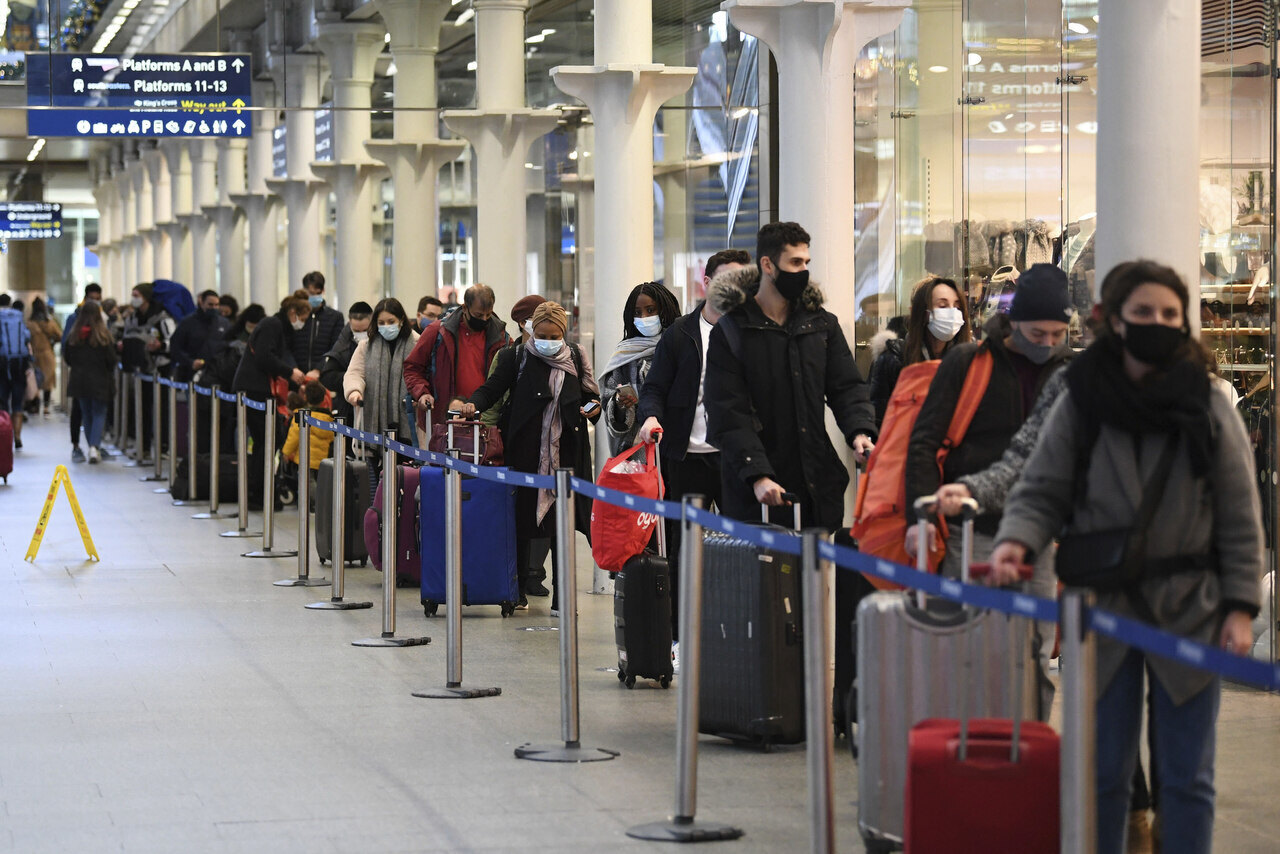New coronavirus mutation: Hungary bans flights from UK
Many countries, including Hungary, have banned the entry of planes and ships coming from the UK because of the rapid spread of the new coronavirus variant on the island. What do we know about the new coronavirus variant? And are the new strict measures really necessary?
The Port of Dover in South-East England is now closed to traffic since France banned the entry of freight transport due to the rapid spread of the new coronavirus variant, reports Szeretlek Magyarország. The British Retail Consortium (BRC) and the Food and Drink Federation (FDF) warned the British government to make France remove the restrictions urgently.
Ireland banned the entry of both British planes and ships for the next 48 hours, while at the same time, France, Belgium, the Netherlands, Austria, Italy, Croatia, Bulgaria, Romania, the Baltic countries, Turkey, Israel, Kuwait, Canada, Salvador, as well as Hungary also closed its borders for planes coming from the UK. Sweden is about to decide, Spain is waiting for the European Commission, and Greece and The Czech Republic have stricter quarantine measures for those who arrive from the UK.
According to the British Chief Medical Officer, so far it is not proven that the new virus mutation would be more dangerous than the earlier one, or that the available vaccines would not develop immunity towards it. However, British Prime Minister, Boris Johnson said on Saturday that the new coronavirus variant could have a 70 % higher infectivity rate. The new variant spreads mainly in London and South-East England.
Reacting very quickly to the situation, the European Council is meeting on Monday to find a solution, as soon as possible. The European Medicines Agency is also expected to decide on the authorisation of the Pfizer vaccine – its distribution could start already on the weekend in member states.
Virologist from the Szentágothai Research Centre of the University of Pécs reacted to the new variant by sharing a ‘New mutations, mutation guide’ on their social media. They say new mutations develop all the time – and some of them become dominant, like the D614G that is spreading on the globe since the first wave.
It is essential to pay attention to whether one or more mutations can be detected in the immunity. In England, there is now a variant that has collected ten months of mutations, compared to the mutation speed of the earlier variant, and it affects the spike protein that is important for the majority of the vaccines.
Virologists of Pécs agree that the closing of borders for UK planes is understandable as long as the risks are unknown.
The new B.1.1.7 variant spreads and causes diseases at a higher rate compared to the earlier known variants. It has a slightly higher mutation number, and many of these (8) affect the spike protein. But as the real risks are unknown until the laboratory examinations are finished, it is better to be careful.
The virologists say the biggest question is whether the immunity developed for other variants will be affected by the new variant. But with the latest information, vaccines can be adjusted. They also say new variants are expected in the future as this is the natural process of the virus. The most important things are still to wear facemasks, wash hands, and keep the distance.

Read alsoCoronavirus – Orbán: State of medical preparedness likely to remain throughout 2021
Source: Szeretlek Magyarország, Virológia Pécs
please make a donation here
Hot news
Container transport in Budapest may stop: How will this affect Hungarian economy?
Minister: Hungary will protect its territory by every means possible
Orbán cabinet may double airspace fee: another ticket price increase?
Hungary expanding the list of prohibited designer drugs
Hungarian minister: Ukraine ‘blackmailing’ Hungary and pro-peace states
Cocaine found on a Greek bus at southern border of Hungary





6 Comments
What other alternatives did Hungary have ?
Correct decision by our Government.
Great Britain – the Control and Management of this novel coronavirus has been an absolute catastrophic humanitarian disaster.
The scientific historical medical facilities and information, the depth of knowledge, the respect Britain was seen to have been held, in the fields of medical science and research, and their financial resources, they have shamed and disgraced themselves – Universally.
Prime Minister – Boris Johnson – admitted “hero” to him personally – Winston Spencer. Churchill – his handling and leadership of this devastating novel virus, displays grave and massive failings by him, to have learnt techniques ideas and philosophies that Churchill overall used and adapted successfully in the saving of Britain in the years of the Second World War.
Great Britain, what is still to unfold, will make for mind boggling following and reading.
Congratulations must be given to the British for finding this new strain. Obviously it has been inside the EU for a while but it is the British that have found it . We can all put a ban on the Brits and call them whatever but let us just remember that they have found this strain for the benefit of us all.
Congratulations to the British for finding this new strain. This seems to have been inside of the EU for a while so at least the Brits have identified it which should hopefully allow us to find out more about it. I can not understand the ban though. Whatever we think of Britons I think that they have identified something that the rest of us could not. Do not for one moment think that this strain has only been in uk it is just that they find it.
@Gary.
Do you really think that this new strain is only British ?.
Do you not realise that the British have found this new strain. I think that is a good thing. Maybe it can help us fight this virus.
90% of our covid infections were from the Spanish strain. Did we ban them ?. As for the above post, well some people really do need help !.
Well done uk for finding this new strain and hopefully helping us all by doing so.
Anonymous,
Yes valid point but from the outset of this novel coronavirus – United Kingdom has disappointed me.
To You and Yours – trust Santa Clause – “surprises” you what he leaves under the tree on Christmas morning.
Hope he and Rudolph, didn’t encounter problems at the border ///